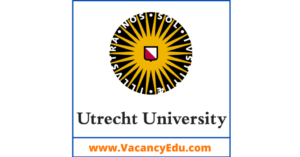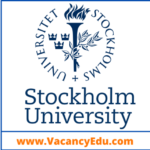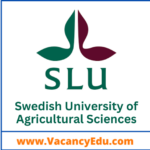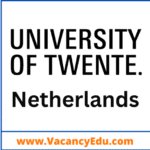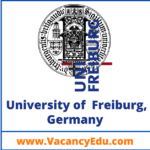Utrecht University, Netherlands invites online Application for number of Fully Funded PhD Degree at various Departments. We are providing a list of Fully Funded PhD Programs available at Utrecht University, Netherlands.
Eligible candidate may Apply as soon as possible.
(01) PhD Degree – Fully Funded
PhD position summary/title: PhD Position: Quantifying the Biological Exposome for Occupational Health
Throughout the process, we will apply a range of molecular methods to analyse biological agents and characterise exposure. Our ultimate goal is to understand how these new methods can be integrated into routine occupational hygiene practices and to validate the resulting risk models.
The project will be conducted in sectors where exposure to biological agents is likely and where ongoing transitions such as shifts in agriculture, food and protein production, and more circular production systems are affecting exposure dynamics. The primary focus will be on the agri-food sector, including primary production sites, slaughterhouses, soy and grain processing plants, and animal feed and food production facilities.
Deadline : 28 June 2025
(02) PhD Degree – Fully Funded
PhD position summary/title: PhD Position in Logics for Multi-Agent Systems
Your main task will be to develop a multi-agent logical/computational framework for reasoning about accountability and responsibility, that takes into account epistemics, abilities and norms of agents.
As a PhD candidate, your primary focus will be to conduct research aligned with this objective, leading to a successful dissertation. You will also contribute to the academic community by publishing peer-reviewed articles and presenting your work at international AI conferences.
This position offers excellent opportunities for professional growth. You will take part in the activities of the ELSA lab, as well as attend international summer schools and workshops to strengthen your research expertise and expand your network. Additionally, you will have the opportunity to contribute to teaching and supervise AI-related thesis projects at both Bachelor’s and Master’s levels (approximately 10-15% of your time). You will be part of the Intelligent Systems group, led by Professor Mehdi Dastani, who will also be your supervisor together with Dr. Dragan Doder.
Deadline : 6 July 2025
View All Fully Funded PhD Positions Click Here
(03) PhD Degree – Fully Funded
PhD position summary/title: PhD in Environmental Economics
To encourage the transition to a net zero economy, many governments have introduced policies to encourage household and firm decarbonisation. These include higher taxes on energy and fuel, but also subsidies for innovation, home insulation, heat pumps, electric cars, green technology etc. Not all households or firms equally respond to and benefit from such policies, there may exist rebound effects, and the ordering of policies may impact policy effectiveness. During this PhD, you will use Dutch registry data and quantitative methods (such as micro-econometric methods for causal inference or structural modelling) to evaluate the effects of climate policy packages on households and/or firms.
The focus of your research will be on quantifying the impact of climate policy (packages). The goal is to derive policy-relevant insights that contribute not only to a better understanding of climate policy making, but also contribute to the design of future policy packages. For this purpose, you will use detailed Dutch registry data. The precise policies to be analyzed will be jointly determined based on research interest, policy relevance and data availability. This position is part of a collaboration between Utrecht University School of Economics and the Netherlands Environmental Assessment Agency (PBL).
Deadline : 22 June 2025
(04) PhD Degree – Fully Funded
PhD position summary/title: PhD position on past, present and future global inland-water methane budget
Inland waters function as active biogeochemical reactors for the production, consumption, transport and emissions of greenhouse gases such as carbon dioxide and methane. Methane is the second most important anthropogenic greenhouse gas contributing to global warming today. However, current estimates of methane emissions from inland waters to the atmosphere are highly uncertain because of limitations in long-term observational data and modelling methodology.
In this four-year study, you will develop a model for the dynamic methane cycling in global inland waters. This model will build on our pioneering model framework and simulate the changes in cycling fluxes of major carbon forms from land via inland waters to sea. You will synthesise, test, and use the reported methane kinetics from labs and culture experiments to construct the model using Python programming language. You will also compile field methane measurement data from published literature and datasets for analysis and model validation. On this basis, we will quantify the spatiotemporal changes in global inland-water methane dynamics from the pre-industrial era till the present and assess the influences of hydro-climate change and a variety of human activities (such as land-use change, eutrophication, and river damming). Moreover, the role of different waterbodies and the mutual interplay between inland-water methane dynamics and climate change will be the research focus. We invite you to share your ideas and suggestions for this innovative project in your motivation letter.
Deadline : 30 August 2025
(05) PhD Degree – Fully Funded
PhD position summary/title: PhD: Responsible Implementation and Scaling of Early Testing in Lynch Syndrome
This project is aimed at better understanding how innovations to test and early detect hereditary cancers can be implemented and scaled responsibly. The focus is on gaining insights into the broad societal impacts of liquid biopsy testing across European regions and on developing recommendations for implementing and upscaling these tests. The project is part of a European Horizon Mission research project called PREDI-LYNCH (‘Validated non-invasive liquid biopsy tests for cancer PREDIction in LYNCH Syndrome’) which brings together contributors from many countries and with different types of expertise. Therefore, you will design co-creation activities for stakeholders, you will engage with patient organisations and conduct ethnographic research in various European countries. Conceptually, you will engage with literature on values, responsible innovation, and scaling.
As a PhD candidate, you will investigate responsible development, implementation and scaling of tests targeted at early detecting Lynch Syndrome. The project will involve from the beginning empirical qualitative research.
Deadline : 23 June 2025
Polite Follow-Up Email to Professor : When and How You should Write
Click here to know “How to write a Postdoc Job Application or Email”
(06) PhD Degree – Fully Funded
PhD position summary/title: PhD Position in Multiscale Mechanistic Modelling of Animal Development
How do cells shape tissues? How are cells themselves shaped by the proteins within them? How do all these different levels of regulation interact to create functional organs? These questions are fundamental in developmental biology and also have applications in regenerative biomedicine. Understanding the multiscale regulatory feedbacks between genes, proteins, cell behaviours, and tissue-scale mechanics is a major challenge.
You will tackle this challenge by developing mechanistic computational models. You will apply these models to recapitulate key aspects of intestinal development in the nematode Caenorhabditis elegans, which is an excellent model system to study multiscale regulation, as mutations in proteins involved in cell shaping lead to cascading impacts on organ-level morphogenesis and lumen formation.
The project will consist of creating models at various levels (subcellular, cell-level, organ-level). At the subcellular level, you will develop models of protein interactions using ordinary differential equations. In a second step, these can be integrated with cell based models to investigate feedbacks between subcellular networks and cell shape regulation. One potential direction of the project is to then investigate how the virtual cells interact to shape an entire simulated organ.
To calibrate and parametrize the models, you will have access to data from experimental collaborators (Boxem Lab). In turn, your models will help our experimental collaborators design targeted experiments to test model predictions.
Deadline : 6 July 2025
(07) PhD Degree – Fully Funded
PhD position summary/title: PhD Candidate: Photonics Technologies for Biofabrication
You will perform cutting-edge research and have access to state-of-the-art facilities both through the Veterinary Clinic and the Regenerative Medicine Center Utrecht (which includes the Utrecht Biofabrication Facility). You coordinate your work within an (inter)national network of collaborators, while working in an ambitious, motivated, multi-disciplinary team of veterinarians, clinicians, material scientists, biologists, and engineers. Furthermore, you will co-supervise BSc and MSc students during their internships. Other teaching opportunities are available. You will be part of the Utrecht Graduate School of Life Sciences and will receive training, supervision, and guidance for both your research work and personal/professional development, which provides you with an excellent basis for an independent academic career.
Deadline : 13 June 2025
(08) PhD Degree – Fully Funded
PhD position summary/title: PhD: Multilingual Adaptations in Novel Language Learning
We are seeking to hire highly motivated, driven, and talented PhD candidates to carry out this project during a period of four years. The project will be carried out at the Institute for Language Sciences (ILS), Utrecht University. You will work in an interdisciplinary team with researchers from the fields of linguistics, speech and language therapy and educational sciences. The PhD positions are part of a new project financed by NWO, entitled “Multilingual adaptations in novel language learning”.
Deadline : 16 June 2025
Click here to know “How to Write an Effective Cover Letter”
(09) PhD Degree – Fully Funded
PhD position summary/title: PhD on Coupled Subsurface Processes in Mine Water Thermal Energy Storage
High-temperature thermal energy storage is playing an increasingly vital role in the transition to a low-carbon future. One of the most promising opportunities is the repurposing of abandoned and end-of-life coal mines as large-scale underground thermal batteries. Coupled with solar energy, these systems can deliver low-carbon, high-temperature district heating in winter.
Sustainable mine water thermal energy storage requires a solid understanding of the complicated water flow dynamics in mined geological formations, which differ fundamentally from those in natural porous media. Underground mine systems consists of mine goaf and underground workings, surrounded by saturated porous rocks. Water flows through these mined voids much faster than through aquifers, offering a significant advantage over conventional aquifer thermal energy storage. However, this also increases the risk of premature thermal breakthrough, reduced thermal longevity of solar energy-charged systems, and heat loss to surrounding rocks. To ensure reliable and efficient thermal energy storage, it is essential to understand how heat and water are stored and transported through fractured, porous, and geomechanically altered rocks under in-situ temperature and pressure conditions. This PhD project is part of the EU RFCS-funded GeoSolar project, which aims to advance high-temperature thermal energy storage technologies and support the just transition of Europe’s end-of-life coal mines. The project will involve close collaboration with mining companies, geothermal technology providers, and district heating network operators.
Deadline : 15 June 2025
(10) PhD Degree – Fully Funded
PhD position summary/title: PhD Position in Colloidal Assembly for Nanostructured Lithium-Ion Batteries
This PhD project aims to develop a nanostructured bijel lithium-ion battery (BLIB) with fast charge/discharge (1 min) and high energy density. Working with three PhD candidates and one postdoc, you will help synthesise a conductive anode within a bicontinuous emulsion, coat it with a nanoscale separator, and fill it with cathode material. The goal is a scalable, robust fabrication method that could revolutionise battery technology and support sustainability.
Your project focuses on developing the BLIB, an experimental system studied using techniques such as modern microscopy, spectroscopy, electrochemistry, and materials synthesis. You work extensively in the lab, using equipment like 3D printers, furnaces, centrifuges, and microfluidic devices. Meticulous data recording and analysis are essential, as the project combines practical engineering with fundamental physical chemistry.
You collaborate with four industry partners, reporting progress twice a year and contributing to written reports. You also present your work at national and international conferences and aim to publish open-access papers forming your dissertation.
Deadline : 23 June 2025
Connect with Us for Latest Job updates
(11) PhD Degree – Fully Funded
PhD position summary/title: PhD Position on Benthic Microalgae and Blue Carbon Burial
Blue carbon is the carbon captured by the world’s oceans and coastal ecosystems. Seagrass meadows are productive coastal ecosystems with the potential to store substantial quantities of organic carbon in sediments. While detrital inputs and belowground biomass are considered the primary sources of sedimentary carbon stocks in seagrass meadows, less is known about the exudation of dissolved (DOM) and particulate organic matter (POM) by seagrasses and to what degree this contributes to carbon burial in these systems.
This project will examine the role of microphytobenthos (MPB) in facilitating the retention and transformation of seagrass-exuded DOM and POM into mineral-associated organic matter (MAOM), a process which can facilitate long-term carbon storage. Thus, MPB may enhance MAOM formation via modifications to sedimentary redox reactions and sediment stabilisation, providing microenvironments favorable for organic matter preservation.
A personalised training programme will be set up, reflecting your training needs and career objectives. About 20% of your time will be dedicated to this training component, which includes following courses/workshops as well as training on the job in assisting in the Bachelor’s and Master’s programmes of the department at Utrecht University.
Deadline : 1 August 2025
Polite Follow-Up Email to Professor : When and How You should Write
(12) PhD Degree – Fully Funded
PhD position summary/title: PhD Position on Sea Ice in the Arctic Climate System
As a PhD candidate, you will investigate how Arctic sea ice is changing and what role ocean warming – also known as Arctic Atlantification – plays in this process. You will use satellite observations, climate reanalysis data, and numerical models to better understand how sea ice is transported out of the Arctic and how heat is exchanged between the ocean, ice, and atmosphere.
Your work will include:
- analysing satellite data and Lagrangian tracking to estimate how much sea ice has been exported from the Arctic over the past decades;
- studying how heat from the ocean contributes to sea ice melting along these paths;
- performing numerical model simulations to explore how changes in winds, ocean temperatures, and other factors affect sea ice in the present and future.
You will be part of a collaborative research team with partners from the Norwegian Polar Institute and Alfred Wegener Institute. This position offers opportunities to develop skills in satellite data analysis, climate modelling, and polar climate research. Your work will help increase understanding of key processes in the Arctic climate system, such as the linkage between Arctic sea ice and the Atlantic Meridional Overturning Circulation (AMOC). This position is part of the NWO-Summit project EMBRACER. You will therefore collaborate intensively with Dutch partners for support.
Deadline : 28 August 2025
(13) PhD Degree – Fully Funded
PhD position summary/title: PhD: Storm Surge Barriers and Adaptation Pathways for Deltas
In this PhD project, you will be part of a large consortium of six PhD candidates and three postdocs. Together, we aim to understand the working of storm surge barriers in the context of delta adaptation.
Your role will be to develop and apply an approach for designing nested adaptive pathways in the physical system linked to the asset management of storm surge barriers, the societal needs, storm surge barrier and ecological impacts. Key research questions will be: How can adaptation decisions on storm surge barriers in the Dutch delta be linked to other decisions for delta adaptation and development under uncertain changing conditions? How can we sequence measures that are made in different regions, e.g. using modelling tools? What is the timing of decisions and what are pivotal decisions?
You will have rich collaborations with other PhD cadndiates, postdocs and staff in the consortium, as well as with the stakeholders (Rijkswaterstaat, waterboards, companies, delta climate center).
Deadline : 12 June 2025
(14) PhD Degree – Fully Funded
PhD position summary/title: PhD Position on Decoding Plant Microbiota–Host Specificity Using AI
The project addresses one of the key challenges in microbiome engineering: the unpredictable colonisation and performance of bioinoculants in different plant species and soil environments. Despite the deterministic nature of root microbiome assembly across plant-soil systems, we still lack a fundamental understanding of the principles guiding host-specific microbial recruitment and function. This knowledge gap hampers the reliable deployment of microbial products in agriculture.
In this PhD project, you will integrate high-throughput experimental data from diverse plant species (across multiple families), SynComs from the MICROP culture collection, and advanced phenotyping from the Netherlands Plant Eco-phenotyping Centre (NPEC). You will conduct large-scale SynCom experiments, perform root microbiome profiling through shotgun metagenomics, and apply AI approaches to model microbiome assembly and microbial host specificity. Your work will contribute to identifying both microbial traits and plant genetic components that govern microbiome recruitment and function.
Deadline : 16 June 2025
(15) PhD Degree – Fully Funded
PhD position summary/title: PhD Position in Causal Agent-based Modelling of Complex Social Systems
In many scientific domains, a primary objective of scientific modelling is not only to represent or describe phenomena but also to inform researchers and policymakers about how best to intervene or change the system under consideration. This is crucial for societal challenges, such as using infectious disease models to curb outbreaks or opinion dynamics models to prevent polarisation and harmful beliefs.
This project will explore the synergy and potential relations between two common approaches in studying complex systems: agent-based modelling and causal modelling. The project aims at developing a computational methodology that integrates various types of causation to design/build agent-based models capable of establishing reliable causal claims about multi-level social phenomena, such as social systems of infectious diseases. This includes examining the causal effect of interventions and analysing probabilistic and counterfactual claims.
As a PhD candidate, your main focus will be conducting research aligned with the project’s objectives, leading to a successful dissertation. You will also contribute to the academic community by publishing scholarly articles and presenting your work at international AI conferences.
Deadline : 16 June 2025
(16) PhD Degree – Fully Funded
PhD position summary/title: PhD Position in Modelling Regulation of Plant Stress Responses across Species
Do you want to be part of the development of resilient crops that can continue to feed the world when faced with climate change, reduced pesticide use, and reduced irrigation? Then you might be the ideal candidate to join our interdisciplinary research institute CropXR! With a budget of 96 million euros over a period of ten years, CropXR focuses on creating eXtra Resilient (XR), sustainable, and climate-adaptive crops. By combining plant biology, simulation modelling, and artificial intelligence we aim to develop smart breeding and cultivation methods. Thus, we try to speed up the breeding of complex resilience traits for several crops in different growing systems. This collaborative effort involves four universities and numerous companies. It encompasses scientific research, data collection and sharing, education, and practical applications in agriculture and plant breeding. Visit the CropXR website
Deadline : 16 June 2025
(17) PhD Degree – Fully Funded
PhD position summary/title: PhD: Geodynamic Exploration of Emergence and Evolution of Hadean Paleogeography
The origin of life remains one of the greatest mysteries in science. While many theories have been proposed, no single explanation has yet gained universal agreement. That’s where the PRELIFE consortium
comes in. PRELIFE unites experts across a wide range of disciplines from astronomy, biology, chemistry, computer science, earth and planetary sciences, education, mathematics, to physics. Together we will explore two fundamental questions: How did life emerge on Earth, and how common are the conditions elsewhere in the universe? To answer these profound questions, we will take an interdisciplinary approach, bringing together diverse perspectives to unlock new insights. But we believe this question is not just for scientists, it is for everyone. That’s why we will invite teachers, students, and the public to join us, through educational programs, artistic collaborations, and museum partnerships. We’re searching for answers to life’s biggest questions, and we need your help.
As part of the PRELIFE programme, we offer 15 exciting research projects. Are you a student with deep expertise in your field and a passion for crossing disciplinary boundaries? Each project connects different scientific fields, working together to unlock the secrets of life’s origins and take the public along. Are you in?
Deadline : 10 June 2025
(18) PhD Degree – Fully Funded
PhD position summary/title: PhD position on Constraining Hadean ocean geochemistry
The origin of life remains one of the greatest mysteries in science. While many theories have been proposed, no single explanation has yet gained universal agreement. That’s where the PRELIFE consortium comes in. PRELIFE unites experts across a wide range of disciplines from astronomy, biology, chemistry, computer science, earth and planetary sciences, education, mathematics, to physics. Together we will explore two fundamental questions: How did life emerge on Earth, and how common are the conditions elsewhere in the universe?
To answer these profound questions, we will take an interdisciplinary approach, bringing together diverse perspectives to unlock new insights. But we believe this question is not just for scientists, it is for everyone. That’s why we will invite teachers, students, and the public to join us, through educational programs, artistic collaborations, and museum partnerships.
We’re searching for answers to life’s biggest questions, and we need your help. As part of the PRELIFE program we offer 15 exciting research projects. Are you a student with deep expertise in your field and a passion for crossing disciplinary boundaries? Each project connects different scientific fields, working together to unlock the secrets of life’s origins and take the public along. Are you in?
Deadline : 10 June 2025
About Utrecht University, Netherlands – Official Website
Utrecht University is a public research university in Utrecht, Netherlands. Established 26 March 1636 (385 years ago), it is one of the oldest universities in the Netherlands. In 2018, it had an enrolment of 31,801 students, and employed 7,191 faculty and staff. In 2018, 525 PhD degrees were awarded and 6,948 scientific articles were published. The 2018 budget of the university was €857 million.
Utrecht University counts a number of distinguished scholars among its alumni and faculty, including 12 Nobel Prize laureates and 13 Spinoza Prize laureates. Utrecht University has been placed consistently in the top 100 universities in the world by prominent international ranking tables. The university is ranked the best university in the Netherlands by the Shanghai Ranking of World Universities 2019, ranking 13th in Europe and 49th in the world.
The university’s motto is “Sol Iustitiae Illustra Nos,” which means “May the Sun of Righteousness Enlighten Us”. This motto was gleaned from a literal Latin Bible translation of Malachi 4:2. Rutgers University, having historical connections with Utrecht University, uses a modified version of this motto.
Utrecht University is led by the University Board, consisting of prof. dr. Henk Kummeling (Rector Magnificus), prof. dr. Anton Pijpers (Chair) and prof. mr. Annetje Ottow (Vice Chair).
Close ties are harboured with other institutions internationally through its membership in the League of European Research Universities (LERU), the Utrecht Network and the European University Association (EUA).
Disclaimer: We try to ensure that the information we post on VacancyEdu.com is accurate. However, despite our best efforts, some of the content may contain errors. You can trust us, but please conduct your own checks too.
Related Posts
- 11 Funded PhD Opportunities at Umea University, Sweden

- 18 Funded PhD Opportunities at Stockholm University, Sweden

- 18 Funded PhD Opportunities at Lund University, Scania, Sweden

- 18 Funded PhD Opportunities at University of Cambridge, United Kingdom

- 23 Funded PhD Opportunities at Swedish University of Agricultural Sciences, Sweden

- 16 Funded PhD Opportunities at University of Twente, Netherlands

- 27 Funded PhD Opportunities at Ulster University, Ireland

- 31 Funded PhD Opportunities at University of Dundee, Scotland, United Kingdom

- 28 PhD Positions-Fully Funded at University of Freiburg, Germany


